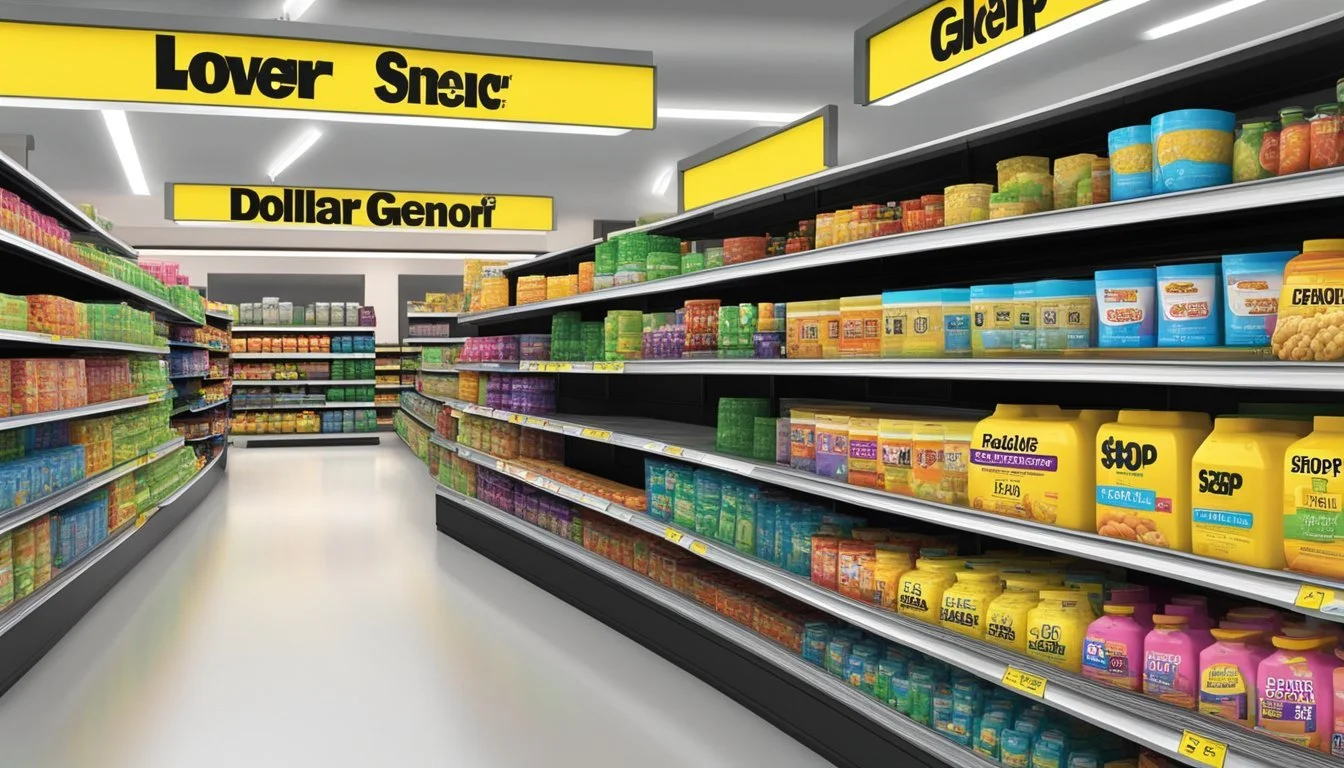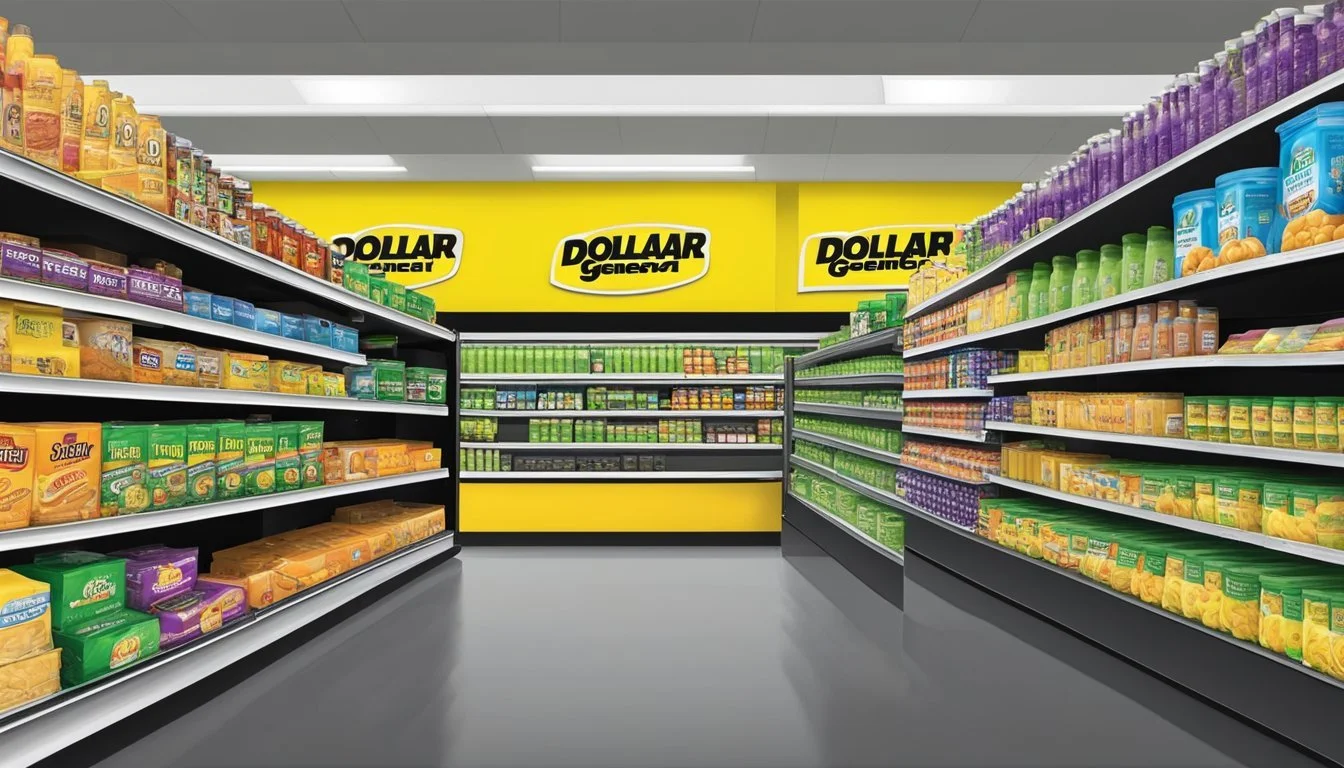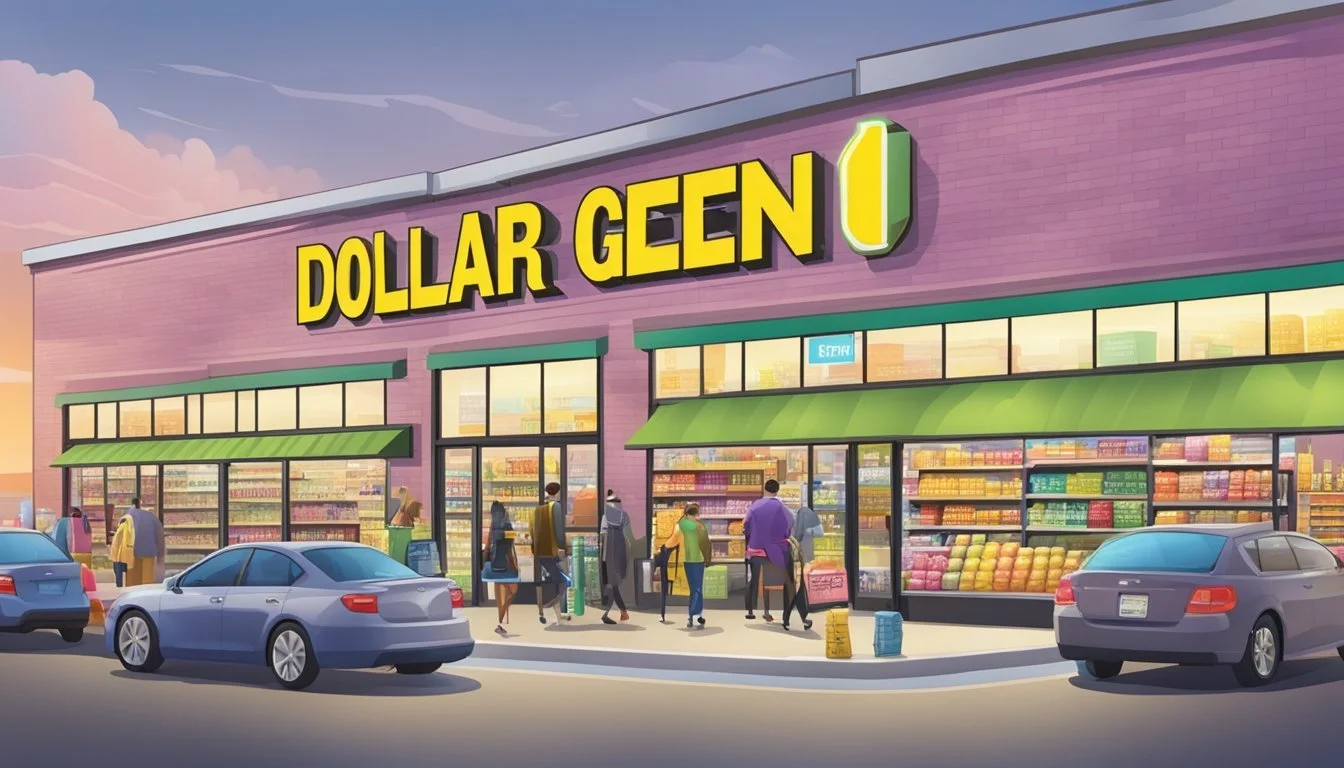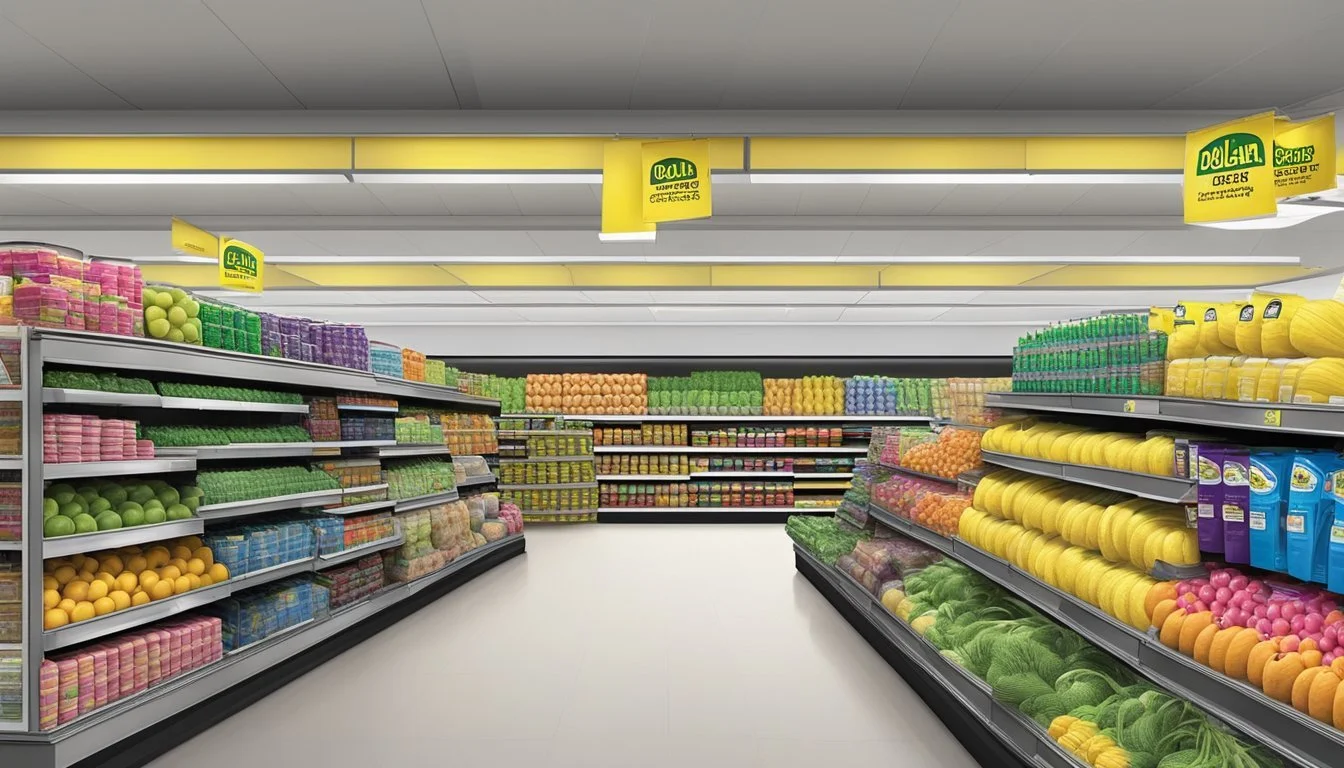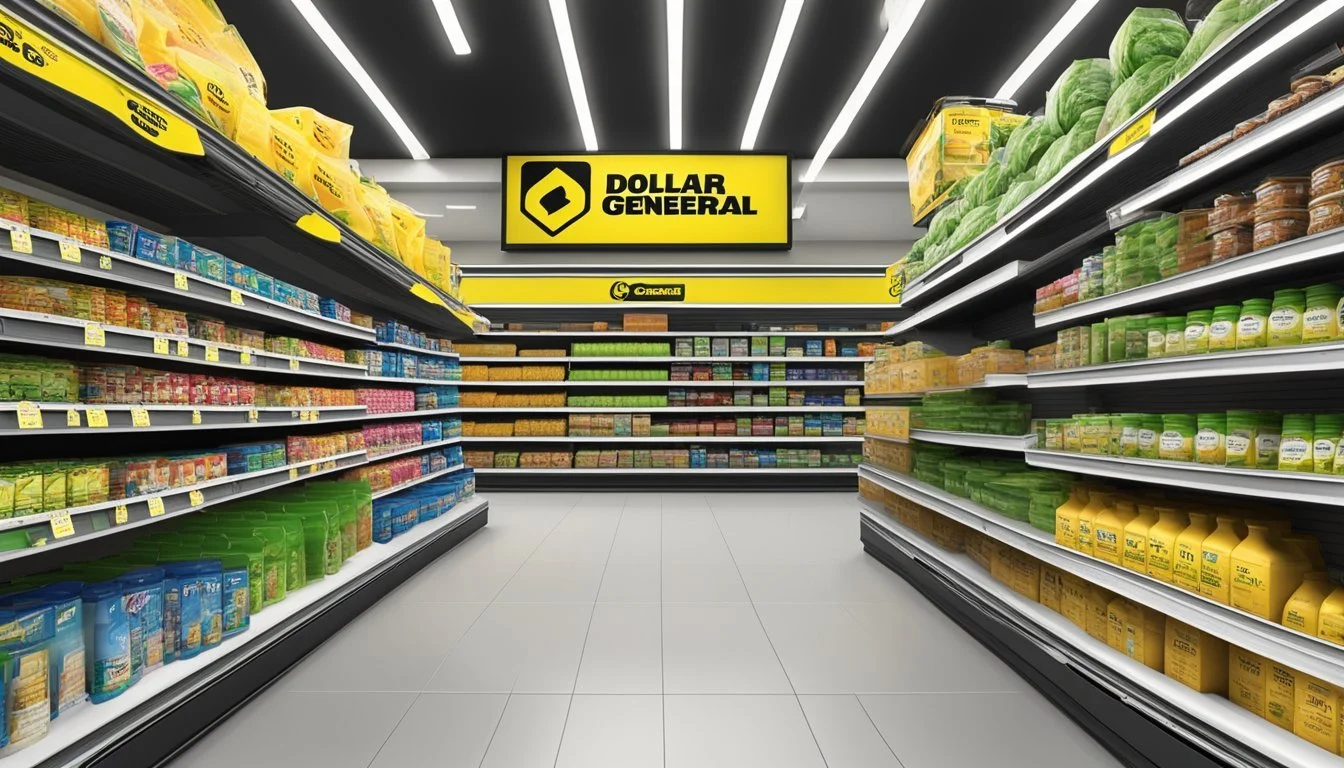Is Dollar General Cheaper than Stop & Shop?
A price comparison of budget retailers
Dollar stores have become increasingly popular shopping destinations for budget-conscious consumers. With their low prices and wide selection of items, chains like Dollar General have expanded rapidly across the United States. Many shoppers wonder how these discount retailers compare to traditional grocery stores like Stop & Shop when it comes to overall pricing.
While Dollar General often has lower prices on many individual items, Stop & Shop can be cheaper for some groceries, especially when factoring in sales and promotions. The price differences between the two stores vary depending on specific products, brands, and locations. Dollar General tends to offer better deals on household goods, toiletries, and shelf-stable foods. Stop & Shop generally has more competitive prices on fresh produce, meat, and dairy products.
Comparing the two stores requires considering factors beyond just price tags. Stop & Shop typically provides a larger selection of products and brands compared to Dollar General's more limited inventory. The shopping experience also differs, with Dollar General focusing on quick, convenient trips and Stop & Shop offering a full-service supermarket atmosphere. Ultimately, savvy shoppers may find the best value by strategically purchasing different items from each store.
Overview of Dollar General and Stop & Shop
Dollar General and Stop & Shop represent two distinct retail models in the American marketplace. These companies cater to different consumer needs through their unique approaches to pricing, product selection, and store locations.
History and Business Model
Dollar General originated in 1939 as a family-owned business in Kentucky. The retailer focuses on offering everyday low prices on household essentials, often in smaller store formats. Dollar General's model targets value-conscious shoppers, providing a mix of national brands and private label products.
Stop & Shop traces its roots back to 1914 in Massachusetts. This supermarket chain offers a wider range of products, including fresh produce, meats, and bakery items. Stop & Shop operates larger stores with a focus on providing a full grocery shopping experience.
Store Locations and Network
Dollar General boasts an extensive network of over 18,000 stores across 47 states. The retailer strategically locates many of its outlets in rural and suburban areas, often serving communities with limited access to larger supermarkets.
Stop & Shop maintains a more concentrated presence in the Northeastern United States. With approximately 400 locations, the chain focuses on urban and suburban areas in states like Massachusetts, Connecticut, and New York.
Dollar General's widespread presence allows it to reach a broader customer base, while Stop & Shop's regional focus enables it to tailor its offerings to local preferences.
Price Comparison and Cost Analysis
Dollar General and Stop & Shop offer different pricing strategies and product selections. A detailed analysis reveals key differences in costs across various grocery categories and package sizes.
Average Pricing of Goods
Dollar General typically offers lower prices on many everyday items compared to Stop & Shop. Basic household goods and packaged foods often cost less at Dollar General. However, Stop & Shop frequently provides a wider selection of brands and product varieties.
Dollar General's pricing strategy focuses on keeping costs down through streamlined operations and smaller store formats. This allows them to offer competitive prices on many staple items.
Stop & Shop, as a full-service grocery chain, may have higher overhead costs reflected in their pricing. They often compensate with loyalty programs and weekly sales to attract budget-conscious shoppers.
Comparing Grocery Items
When comparing specific grocery items, the price differences can vary:
Milk: Often cheaper at Dollar General
Juice: Comparable prices, but Dollar General may have smaller sizes
Dairy products: Mixed results, with some items cheaper at Dollar General
Packaged foods: Generally less expensive at Dollar General
It's important to note that brand availability may differ between stores. Stop & Shop typically offers more premium and organic options, which can affect price comparisons.
Consumer reports suggest that while Dollar General is often cheaper for packaged goods, Stop & Shop may offer better deals on fresh produce and meats.
Package Sizes and Volume
Package sizes play a crucial role in price comparisons between Dollar General and Stop & Shop. Dollar General frequently stocks smaller package sizes, which can appear less expensive at first glance.
For example:
Cereal: 12 oz box at Dollar General vs. 18 oz box at Stop & Shop
Laundry detergent: 40 oz bottle at Dollar General vs. 64 oz bottle at Stop & Shop
To accurately compare prices, shoppers should calculate the cost per unit (ounce, pound, etc.). In some cases, larger packages at Stop & Shop may offer better value despite higher upfront costs.
Dollar General's smaller packages can benefit consumers who prefer buying in smaller quantities or have limited storage space. However, bulk purchases at Stop & Shop might lead to greater long-term savings for families or frequent shoppers.
Product Selection and Availability
Dollar General and Stop & Shop offer distinct product ranges tailored to different shopping needs. Their inventory choices reflect their market positioning and target customers.
Fresh Produce and Perishables
Dollar General provides a limited selection of fresh produce and perishables. Most stores stock basic fruits and vegetables like bananas, apples, and potatoes. Dairy products include milk, eggs, and cheese.
Stop & Shop, as a full-service supermarket, offers a wider variety of fresh produce. Their selection includes organic options and specialty items. The store's deli and bakery departments provide freshly prepared foods and baked goods.
Dollar General focuses on packaged and frozen foods with longer shelf lives. Stop & Shop maintains full-service meat and seafood counters, catering to customers seeking fresh protein options.
Non-Grocery Items
Dollar General excels in offering a broad range of non-grocery items at competitive prices. Their inventory includes household cleaning supplies, personal care products, and basic clothing.
The store stocks seasonal items, party supplies, and small home goods. Dollar General carries a mix of national brands and private label products across various categories.
Stop & Shop's non-grocery selection is more limited but still substantial. They offer kitchen gadgets, small appliances, and health and beauty items. The store also provides a pharmacy section in many locations.
Both retailers stock greeting cards and basic office supplies. Dollar General tends to have more variety in low-cost home decor and craft items compared to Stop & Shop.
Discounts, Coupons, and Savings Programs
Both Dollar General and Stop & Shop offer various ways for customers to save money on their purchases. These include store-specific promotions, digital coupons, and loyalty programs that provide exclusive discounts and rewards.
Store-Specific Offers
Dollar General provides weekly ads featuring limited-time discounts on select items. They also offer digital coupons that can be loaded onto a customer's account and applied at checkout.
Stop & Shop runs regular promotions and offers both print and digital coupons. Their circular deals change weekly, giving shoppers opportunities to save on different products.
Both stores participate in cash back apps like Ibotta and Fetch Rewards, allowing customers to earn rebates on their purchases.
Loyalty and Rewards Programs
Dollar General's DG Digital Coupons program lets shoppers clip coupons online and redeem them in-store or during checkout for online orders.
Stop & Shop's GO Rewards program offers personalized deals, gas savings, and points that can be redeemed for discounts on future purchases.
Members of both programs receive exclusive offers and early access to sales events. These loyalty programs are free to join and can lead to significant savings for regular shoppers.
Consumer Shopping Experience
Dollar General and Stop & Shop offer distinct shopping environments tailored to their target customers. Their approaches to store layout, product selection, and customer service shape the overall experience for shoppers.
Store Layout and Design
Dollar General stores typically feature a no-frills design with simple shelving and basic decor. The layout prioritizes efficiency, with clearly labeled aisles and prominent signage for easy navigation. Products are often displayed in their original shipping boxes to reduce labor costs.
Stop & Shop, in contrast, invests more in store aesthetics. These supermarkets boast wider aisles, polished floors, and elaborate displays. The produce section is usually near the entrance, creating a fresh and inviting atmosphere. Departments like bakery, deli, and pharmacy are positioned around the store's perimeter.
Both chains strategically place impulse items near checkout areas. Dollar General focuses on small, low-cost goods, while Stop & Shop features magazines, snacks, and seasonal items.
Customer Service and Convenience
Dollar General emphasizes quick, self-service shopping. Stores are often located in rural areas or urban neighborhoods for easy access. The chain keeps staff numbers low to maintain low prices, which can result in longer checkout lines during busy periods.
Stop & Shop offers more personalized service with dedicated counters for deli, bakery, and seafood. Many locations provide self-checkout options and online ordering with curbside pickup. The larger store format allows for a wider product selection but may require more time to navigate.
Dollar General's smaller footprint makes it ideal for quick trips. Stop & Shop caters to larger shopping excursions with cart corrals in parking lots and wider checkout lanes to accommodate full carts.
Business Practices and Ethics
Dollar General's business model focuses on offering low prices through cost-cutting measures. This approach impacts their relationships with suppliers, product sourcing, and employee compensation.
Supplier Relationships and Product Sourcing
Dollar General maintains tight control over its supply chain to keep costs down. The company negotiates aggressively with suppliers to secure the lowest possible prices. This allows them to offer products at discounted rates to customers.
Dollar General sources many items from overseas manufacturers to reduce costs further. They also work with domestic suppliers who can meet their pricing requirements.
The company's large scale gives them significant bargaining power. This enables them to demand favorable terms from suppliers.
Labor Costs and Employee Wages
Dollar General keeps labor costs low as part of its discount store strategy. The company typically pays employees at or slightly above minimum wage.
Many Dollar General stores operate with minimal staff. A single store may have only 2-3 employees working at a time.
Critics argue these practices lead to high turnover and poor working conditions. Supporters say the model provides jobs and affordable goods in underserved areas.
Dollar General has faced lawsuits alleging unpaid overtime and misclassification of managers. The company maintains it follows all labor laws and regulations.
Market Trends and Competitive Landscape
Dollar stores have become a significant force in retail, driven by economic conditions and changing consumer preferences. Their growth has reshaped the competitive landscape, challenging traditional retailers and adapting to market demands.
Impact of Economic Conditions
Economic downturns and rising inflation have fueled the expansion of dollar stores. During the Great Recession, consumers sought more affordable shopping options. This trend continued through the pandemic and subsequent inflationary period.
Dollar General has capitalized on these conditions, opening stores rapidly in underserved areas. Their compact store format, averaging 7,400 square feet, allows for quick and cost-effective expansion. This strategy has proven particularly effective in small towns and rural areas.
The company's focus on essential items and competitive pricing has resonated with budget-conscious shoppers. As a result, Dollar General has seen consistent growth, even as other retailers struggle.
Competitors and Alternatives
Dollar General faces competition from various retail sectors. Walmart remains a major rival, offering a wider selection and pursuing its own small-format stores. Dollar Tree, another prominent dollar store chain, competes directly in many markets.
Target and Kroger have also adapted their strategies to compete with dollar stores. They've introduced smaller store formats and expanded their private label offerings to attract price-sensitive consumers.
Online retailers like Walmart.com pose a growing threat, especially in rural areas where dollar stores have traditionally thrived. To counter this, Dollar General has been expanding its fresh grocery options and digital presence.
Consumer Reports and other studies have shown mixed results when comparing prices between dollar stores and traditional retailers. While dollar stores often offer lower prices on certain items, they may not always be the cheapest option overall.

